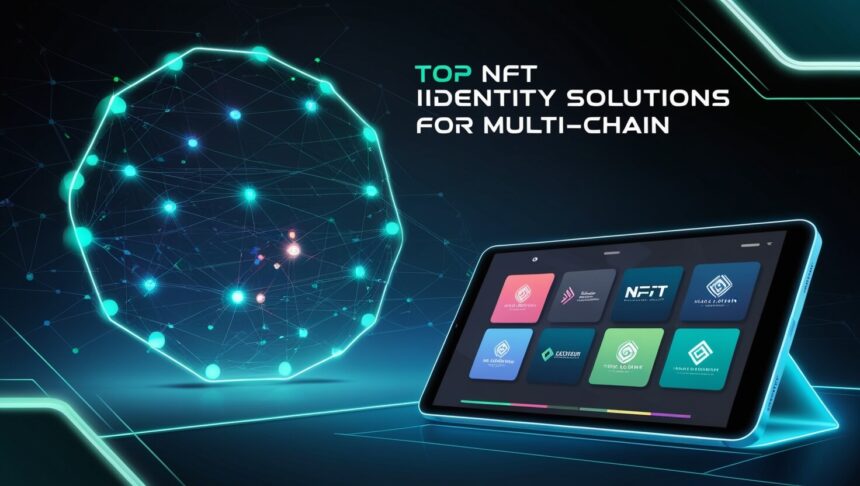I will cover the Top Nft Identity Solutions For Multi-chain ecosystems in this article. These systems provide users to control their digital identities over different blockchains ecosystems while improving interoperability, privacy, and control.
From identity in domains to privacy-preserving attestations and cross-chain functionalities, these solutions empower users in the rapidly-expanding Web3 world.
Key Point & Top Nft Identity Solutions For Multi-chain
| Platform | Key Point |
|---|---|
| SelfKey | Offers blockchain-based domains with no renewal fees, supporting multiple blockchains. |
| Nuggets | Ethereum Name Service allows users to map human-readable names to Ethereum addresses. |
| Space ID | A universal name service network supporting .bnb and .arb domains. |
| Civic Pass | Provides secure, reusable identity verification for DeFi and dApps. |
| Polygon ID | Enables privacy-preserving, self-sovereign identity solutions on Polygon. |
| Galxe ID | A Web3 credential system powering on-chain identity and growth campaigns. |
| Sismo | Offers private, selective disclosure of on-chain identity using ZK proofs. |
| Nametag | Enables real-time Web3 profile display across websites and social platforms. |
| Holograph | Specializes in creating and bridging NFTs across multiple blockchains. |
1. SelfKey
SelfKey boasts a state-of-the-art NFT identity solution for multi-chain ecosystems and facilitates the secure decentralized management of identity. Users can generate self-sovereign digital IDs as NFTs which span across different blockchain ecosystems.
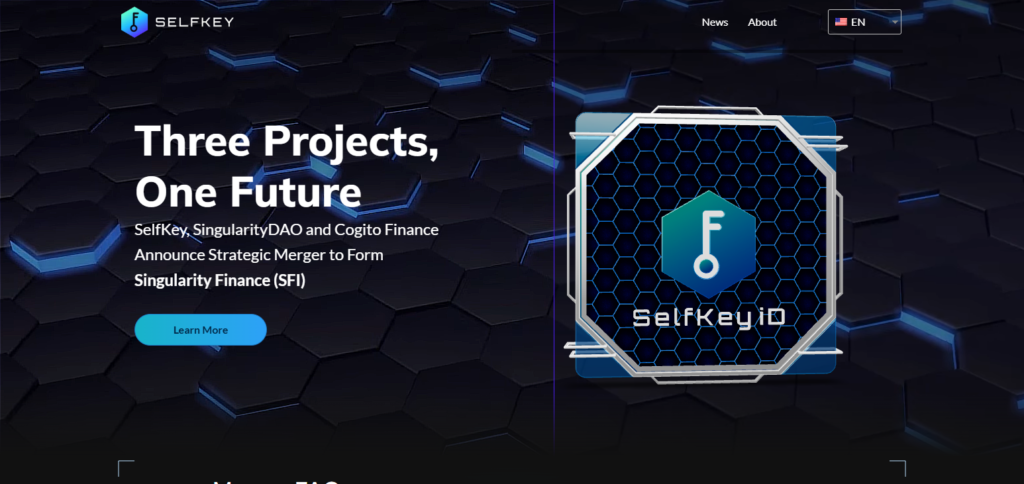
Through SelfKey, users streamline privacy and compliance with APIs, allowing SelfKey to identity verification within DeFi, exchanges and Web3 to remain user-centric, seamless, and portable.
Pros of SelfKey
- Full control over personal identity data is granted.
- KYC procedure done once is portable to multiple platforms.
- Ability to access a large identity-related service marketplace.
- ETH and ERC-20 tokens are supported by open-source wallet.
Cons of SelfKey
- Verification is based on third-party certifiers.
- Identiy domain competition is intense and SelfKey faces many challengers.
- KEY tokens do not go through mining processes.
- Lack of widespread acceptance can inhibit practical applications tied to identity services.
2. Nuggets
Nuggets is one of the best NFT identity solutions designed for multi-chain ecosystems as it offers a decentralized convergence of digital identity, payment, and authentication.

Users are empowered with total control over their personal data through NFT-based credential, enabling frictionless engagement on various blockchain networks.
Privacy, trust, and compliance are ensured in DeFi and cross-chain environments through zero-knowledge proofs integrated alongside biometric security.
Nuggets Pros & Cons
Pros of Nuggets
- Provides login, payment, and identity without centralization.
- Enhances privacy through zero-knowledge proofs.
- Strong security with biometric authentication.
- Prevents data sharing with third-parties.
❌ Cons of Nuggets
- Nuggets is still in the adoption phase across more mainstream platforms.
- Swipe Nuggets’s little-known identity provider status within global processes.
- Business integration might need additional IT services.
- Wider utility needs critical network effects.
3. Space ID
The Space ID service also operates on the Ethereum blockchain, BNB Chain, and Arbitrum, providing a single naming service across several chains. It helps users get readable domain names such as .bnb and .arb, easing wallet addresses and enabling Web3 identiy.
Its significance derives from the fact that it is integrated into wallets, exchanges, social platforms, and its multi-chain compatibility. Users have full control and ownership of the domains since they are issued as NFTs.

Space ID accommodates reverse resolution and cross-platform logins, enabling users to store their profile data. It enables domain trading through an inbuilt marketplace.
With its expanding ecosystem and DAO governance, Space ID is enhancing identity solutions for decentralized multi-chain settings and becoming the go-to identity solution, enhancing usability and personalization in Web3.
Space ID
Pros:
- Cross-chain compatibility (Ethereum, BNB Chain, and Arbitrum)
- Has a domain auction and reverse lookup services
- Obtained funding from Binance Labs and growing at a rapid rate
Cons:
- Compared to ENS and Unstoppable Domains this is still in the development phase
- Lacks inclusion in the Ethereum system
.bnband.arbdomains are less popular than.ethdomains
4. Civic Pass
Civic Pass enables identity verification using Civic ID on Ethereum or Civic Pass on Solana while maintaining user privacy. Civic Pass is designed to issue NFT-based passes that allow age, identity, or credential verification across multiple blockchains such as Ethereum, Solana, and Polygon.
The Civic ecosystem issues KYC refunds as users complete KYC checks on a Pay-per-Use basis. Civic Pass empowers controlled identity verification relevant to age restrictions alongside information privacy on-chain.

Civic combines identity tools while allowing users babysit their data with self-sovereign identity and secure access model.
Pass is well-suited for gated mints under NFTs or private DeFi protocols and Tiered Multi-chain Distributed Identity Demilitarized Zones. Streamlined compliance and permission-less use also position Civic Pass as a foundational utility for gated applications.
Civic Pass Pros & Cons
Pros:
- KYC and compliance structure that protects privacy
- Operates on multiple chains (Ethereum, Solana, and more)
- Controls access to regulatory bodies in DeFi applications
Cons:
- Can be off-putting to privacy advocates due to identity verification being obligatory
- Not a typical domain/username identity system
- Relies on Civic’s centralized infrastructure for Civic’s issuance services.
5. Polygon ID
Polygon ID utilizes ZK Proof technology to enable self-sovereign identity management. Users can verify sensitive information like age or credentials without revealing identifying details. It also allows privacy-respecting verification on dApps using Polygon’s zkEVM.

The essence of Polygon ID is the ZK authentication focus, enabling trust and confidentiality within multi-chain Web3 ecosystems. It allows dApps to perform KYC and implement access controls while still providing users privacy.
Users may also claim and manage credentials as NFTs, enabling them to prove across multiple services. Polygon ID is a self-contained identity solution designed for Web3 users, featuring open-source SDKs, Polygon’s growing ecosystem support, and design-for-verifiable-credentials.
Polygon ID Pros & Cons
Pros:
- Implements zero knowledge proofs for privacy
- Fully self-sovereign and does not require a third party
- Native to the Polygon ecosystem which is still growing.
Cons:
- For now, support is limited outside Polygon.
- Complicated implementation for decentralized applications (dApps).
- Still has greater competition from other chains.
6. Galxe ID
Galxe ID is a decentralized identity and reputation infrastructure created by Galxe (formerly Project Galaxy). It combines NFTs with identities by consolidating credentials and on-chain activities into an NFT.
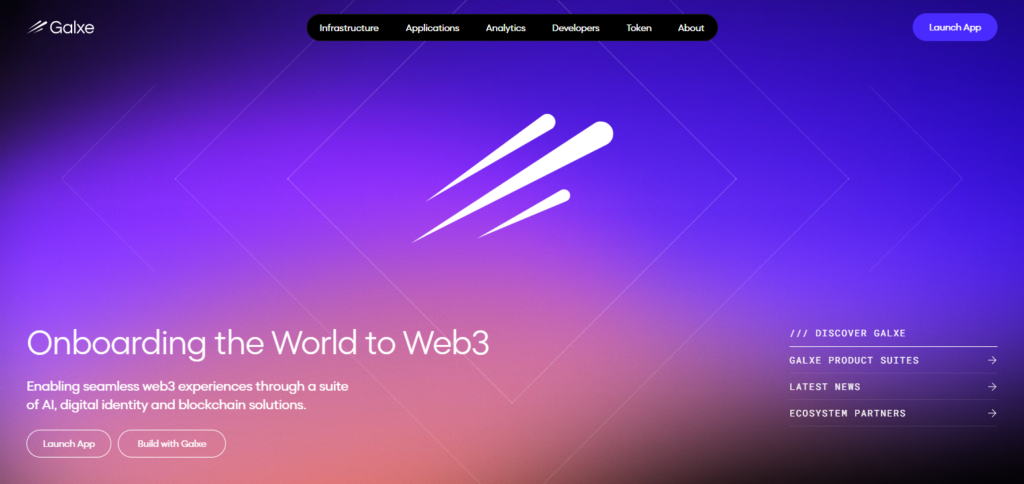
Galxe ID is useful because it allows users to display their contributions, interactions, and reputations across multiple chains such as Ethereum, BNB Chain, and Polygon. These IDs are utilized in voting in DAOs, on quest platforms, and in Web3 social platforms.
It works with Galxe’s credentials system, enabling dApps to develop reputation-based functions.
Galxe ID outstands users with customized, self-sovereign identity profiles and assists in redefining reward systems, achievements, and gamified participation in Web3. It integrates identity, reputation, and utility over several blockchains.
Galxe ID Pros & Cons
Pros:
- Allows engagement in multiple chains including Ethereum, BNB, and Polygon.
- Integrated with quests, DAOs, and NFT badge systems.
Cons:
- More on credential management than primary identity system.
- Relies on Galxe ecosystem for basic functions.
- Less optimal for Web3 definition or wallet identity naming.
7. Sismo
A personal credential can be proven without its presentation through zero-knowledge proofs, something Sismo employs as a decentralized identity protocol. It allows users to consolidate credentials from different accounts without revealing their identities.
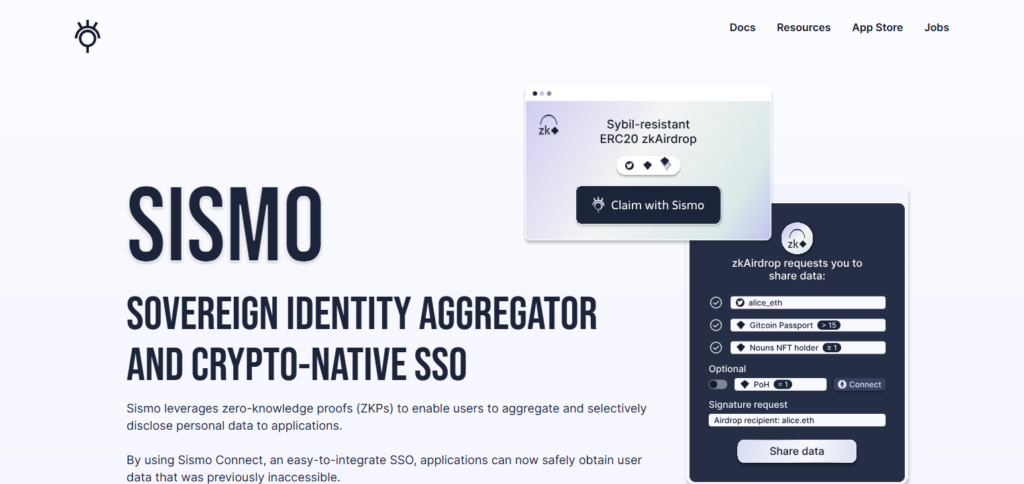
Sismo enables pseudo-anonymous identities to have verified identities which aids in enabling users to validate identity across multi-chain dApps without the need to blend all wallets, unearth their transaction history, or reveal any unneeded information, which makes it important.
It mints badge-based NFTs that contain claimable verifications that can be used for voting in DAOs, gated access, and reward distribution in communities.
Privacy, composability, cross-chain services and a flexible identity system that provides blanket trust for sensitive DeFi and governance applications while maintaining anonymity. That is the objective Sismo concentrates on in the multi-chain environments.
Sismo Pros & Cons
Pros
- Enables proof of identity without revealing wallet history.
- Reputation-based access with badges.
Cons:
- Can be complicated for the end user to navigate and control.
- Still nascent with sparse integrations.
- Not made for domain-style naming systems.
8. Nametag
Nametag allows Web3 users to link verified identities with their social media accounts and crypto wallets. It integrates Twitter and Discord with on-chain activity, aiding the development of public, reputation-based profiles.
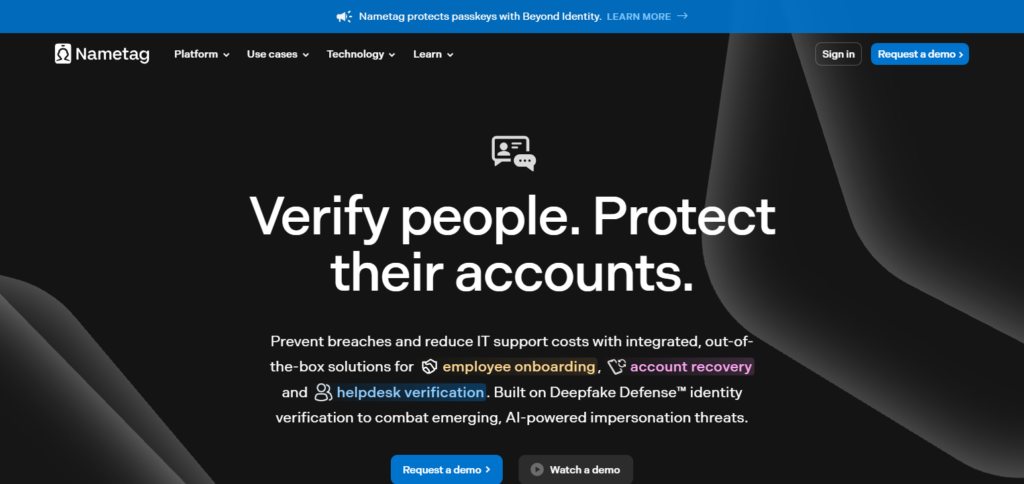
Nametag’s significance lies in its cross Web2 and Web3 identity feature—bringing social proof to multi-chain wallets. It mints badge and tag NFTs that highlight verified roles, ownerships, or achievements. These tags serve as digital calling cards in Web3 and dApps.
It also works with ENS and other identity layers, augmenting interoperability. Its emphasis on the display of identity, reputation, and social association is crucial in decentralized public profiles for influencer verification for Web3.
Nametag Pros & Cons
Pros:
- Merges Web2 identity (Twitter, Discord) with Web3.
- Reputation badges and identity badges.
- Works with ENS and other identity protocols.
Cons:
- Focused only on the social aspect of identity. No wallet naming.
- Does link Web2 accounts which can compromise privacy
- Still lacks community and ecosystem support
9. Holograph
Holograph provides infrastructure for cross-chain minting and deployment of NFTs, including identity based tokens. This is important for maintaining identity all through the blockchains as NFTs must cross exist and operate effortlessly on different chains.
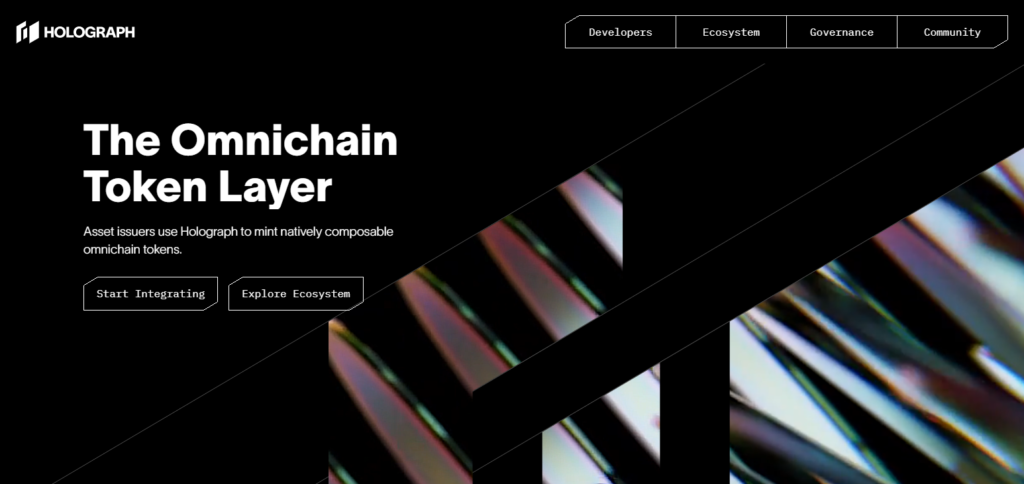
Holograph’s utility in identity solutions stems from the possibility of minting once and deploying on Ethereum, BNB, Avalanche and others without duplication. Such an approach guarantees user identities and verifications across network silos.
Its Holograph Operator protocol takes care of metadata, ownership, and on chain functionalities like NFTs bound to the blockchain. For projects requiring consolidated identity tokens on different chains, Holograph bridging technology serves as a fundamental infrastructure layer for multi-chain identity in Web3.
Holograph Pros & Cons
Pros:
- Supports deploying identity NFTs across multiple chains
- Preserves information and purpose throughout different chains
- Perfect for scalable use of identities and tokens
Cons:
- More devoted to bridging NFTs than identity solutions
- Needs knowledge of multi-chain token systems
- Needs right integration of Holograph protocol
Conclusion
To sum up, the development of multi-chain NFT identity solutions is changing how people manage and showcase their identities in decentralized ecosystems. Every platform has its distinct advantages.
Unstoppable Domains and ENS make wallet services more user-friendly through readable names, and Space ID enhances multi-chain access. Civic Pass and Polygon ID concentrate on privacy and compliance, while Galxe ID, Sismo, and Nametag focus on reputation and social identity linkages, emphasizing verification.
Holograph is distinctive for seamless cross-chain minting of identity NFTs. Collectively, these solutions enable the construction of robust, privacy-preserving, cross-chain interoperable identities in Web3 and advance the goals of a more efficient, decentralized internet.



